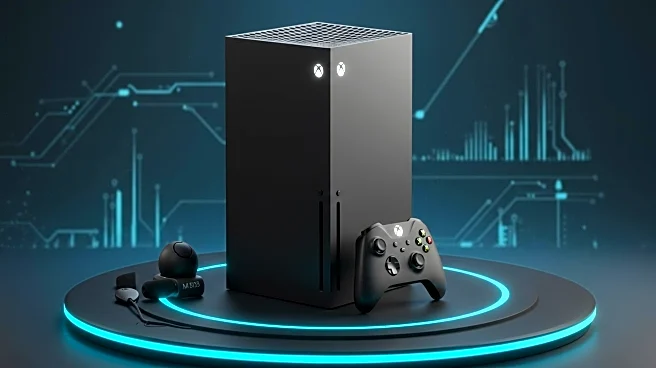What is the story about?
What's Happening?
Carl Ledbetter, a prominent hardware architect at Microsoft, has shared reflections on the Xbox Series X|S as the generation comes to a close. Ledbetter, who has been with Microsoft for 30 years, has played a significant role in the design of Xbox devices, including the Xbox Series X and Series S. These consoles were designed to deliver high performance while fitting seamlessly into modern living spaces. The Xbox Series X is noted for its powerful capabilities and sleek design, while the Xbox Series S emphasizes compactness and efficiency. Microsoft is transitioning towards a focus on gaming publishing, with Xbox Game Pass and popular games driving profits. The company is also exploring partnerships with PC OEMs, potentially leading to new gaming hardware licensing models.
Why It's Important?
The reflections by Carl Ledbetter highlight Microsoft's ongoing commitment to innovation in gaming hardware. As Microsoft shifts towards publishing, the design and performance of its consoles remain crucial for maintaining competitiveness against rivals like PlayStation. The Xbox Series X|S has set a high standard for gaming consoles, and future developments could further enhance Microsoft's position in the gaming industry. The potential expansion into PC gaming hardware through partnerships with OEMs could diversify Microsoft's gaming portfolio and create new revenue streams. This transition reflects broader trends in the gaming industry, where platform exclusivity is giving way to cross-platform accessibility.
What's Next?
Microsoft's partnership with AMD for the next Xbox console suggests continued investment in hardware development. The company is likely to focus on integrating new technologies while maintaining compatibility with existing Xbox games. The exploration of gaming hardware licensing models could lead to collaborations with PC manufacturers, expanding the Xbox brand beyond traditional consoles. As Microsoft embraces AI and cloud computing, these technologies may play a role in future gaming innovations. Stakeholders, including gamers and industry analysts, will be watching closely to see how Microsoft navigates these changes and what new products emerge from its design labs.
Beyond the Headlines
The shift towards publishing and potential hardware licensing models raises questions about the future of console gaming. Microsoft's strategy may influence industry standards, particularly in terms of cross-platform gaming and hardware design. Ethical considerations around AI and cloud computing in gaming could also emerge, as these technologies become more integrated into gaming experiences. The long-term impact on consumer choice and gaming culture will depend on how Microsoft balances innovation with user needs.














